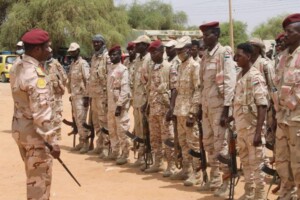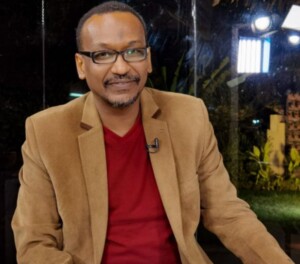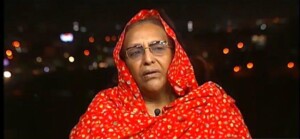Sudan’s farmers reject higher taxes, bemoan pest threats to crops
On Monday, the Ministry of Finance and Economic Planning issued a new decision, determining new fees for irrigation water services in national projects. The irrigation fees for 2022-2023 for the El Gezira Agricultural Scheme are set on SDG6,000 per feddan (4,200 square metres), and SDG8,000 for the El Rahad Agricultural Project in North Kordofan and the El Souki Agricultural Project in Sennar. Farmers at the New Halfa Agricultural Project in Kassala will pay SDG4,500 per feddan.
 A Darfur farmer harvesting millet. (File photo: Albert Gonzalez Farran / UNAMID).
A Darfur farmer harvesting millet. (File photo: Albert Gonzalez Farran / UNAMID).
On Monday, the Ministry of Finance and Economic Planning issued a new decision, determining new fees for irrigation water services in national projects. The irrigation fees for 2022-2023 for the El Gezira Agricultural Scheme are set on SDG6,000 per feddan (4,200 square metres), and SDG8,000 for the El Rahad Agricultural Project in North Kordofan and the El Souki Agricultural Project in Sennar. Farmers at the New Halfa Agricultural Project in Kassala will pay SDG4,500 per feddan.
The Ministry said that “these fees will help in rehabilitating irrigation canals, cleaning weeds, maintenance, and the water supply in the projects”.
Rejection
The El Gezira and El Managil Farmers Alliance has announced its categorical rejection of the increased taxes of SDG16,000 per feddan. Abdeen Bargawi, the official spokesperson for the Farmers Alliance, told the Sudan Today programme on Radio Dabanga yesterday that the increased irrigation fees of SDG6,000 per feddan plus additional taxes amounting to SDG10,000 per feddan are equivalent to the amounts required to prepare the land for the upcoming winter season. He added that the irrigation channels referred to have already been cleaned for the current season.
Bargawi stressed the farmers’ inability to pay the fees. He called the decision “arbitrary”, and asserted that “the increase in fees and taxes on farmers and traders aims to cover the deficit of the country’s treasury.”
The US Dollar is currently selling for SDG580 on the parallel forex market in Khartoum. The official rate fluctuates between SDG569 and SDG582.
Pests
Farmers in Ed El Fursan in South Darfur renewed their complaint to the state Ministry of Agriculture about the spread of agricultural pests, especially starlings.
A number of farmers told Sudanese reporters on Tuesday that they had submitted several complaints to the ministry regarding birds that threaten the agricultural season, but it has not responded to them so far.
The Director-General of the South Darfur Ministry of Agriculture said on Monday that the spraying aircraft was on its way to the area of Ed El Fursan.
Farmers in Sirba in West Darfur complain about the widespread spread of the locusts in large parts of the agricultural lands in the locality.
Speaking to Radio Dabanga, farmer Mohamed Abakar warned of a real disaster if the authorities fail to intervene and spray the farms. The locusts caused the destruction of large areas in a short period of time, he said.
Farmers in Mellit, Um Keddada, El Taweisha and El Laeit in North Darfur complain about the spread of a bug that feeds on millet, threatening the failure of the entire agricultural season.
Farmers told Radio Dabanga that they are fighting the pest without any official participation from the government.
He appealed to the authorities and the Ministries of Agriculture in El Fasher and Khartoum to intervene and organise campaigns of spraying with pesticides to save the remaining millet and sesame crops, especially that 95 per cent of them grow millet as a main crop.











 and then
and then